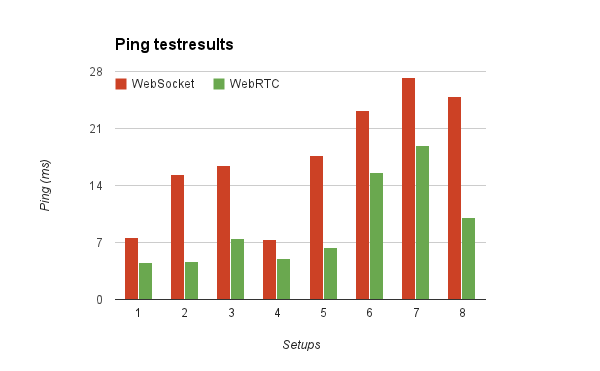auto-peer
v0.8.1
Published
Automatic peer connection
Downloads
29
Readme
auto-peer.js 


Abstract
auto-peer.js automates the peer.js connection establishment and connects all auto-peer.js clients with each other using webRTC.
The auto-peer.js library is an experimental webRTC client/server library which relies heavily on peerjs
Motivation
The idea auto-peer.js was developed when creating a multi media installation for a couple of tablets. It should allow to communicate from tablet to tablet as fast as possible.
 from http://engineering.spilgames.com/mastering-webrtc/
from http://engineering.spilgames.com/mastering-webrtc/
How does it work?
tl;dr: WebRTC with a node signaling server
auto-peer.js core consists of a node websocket backend and a client side script. When the user opens the application a new client is created. This client asks the backend to tell all existing clients to establish a new webRTC connection.
Demos
Example
Take a look at the example directory.
Server
var app = require('express')();
var server = app.listen(3000);
var autoPeer = require('auto-peer')(server);
app.use(autoPeer.app);
app.get('/', function (req, res) {
res.sendFile(__dirname + '/index.html');
});Client
<!-- The auto-peer server delivers the client script at /auto-peer.min.js -->
<script src="/auto-peer.min.js"></script>
<script>
var autoPeer = new AutoPeer();
// Wait until autoPeer connected
autoPeer.on('autoPeer:connected', function (clientId) {
autoPeer.broadcast('example-message', 'This is a message to all connected peers from ' + clientId);
});
// Wait for incoming messages
autoPeer.on('example-message', function (message, data) {
console.log('received data:', message);
// Reply kindly
if (message !== 'thank you') {
autoPeer.sendTo(data.source, 'example-message', 'thank you');
}
});
</script>Api
autoPeer.broadcast(messageName, data, sendToSelf);- messageName - name of the message
- data - optional data
- sendToSelf - optional (only for client version) send message also to the current peer
autoPeer.sendTo(clientId, messageName, data);- clientId - the peer id the message should be send to
- messageName - name of the message
- data - optional data
Events
auto-peer inherits from eventEmitter3. for API methods see the official Node.js documentation: http://nodejs.org/api/events.html
Client
autoPeer:connected
Fired when the current peer is connected to every other peer
autoPeer:data
Fired when the current peer receives any data
autoPeer:peerJoined
Fired when another peer joined
Server
autoPeer:newClient
Fired when a new client connected to the server
Security
auto-peer.js is an experimental library and was not meant to be used in productive environment. As a client is able to send commands to any other client you should never evaluate html or javascript code transmitted by auto-peer.
Contributing
In lieu of a formal styleguide, take care to maintain the existing coding style. Add unit tests for any new or changed functionality. Lint and test your code using Grunt.
License
Copyright (c) 2014 Jan Nicklas. Licensed under the MIT license.
